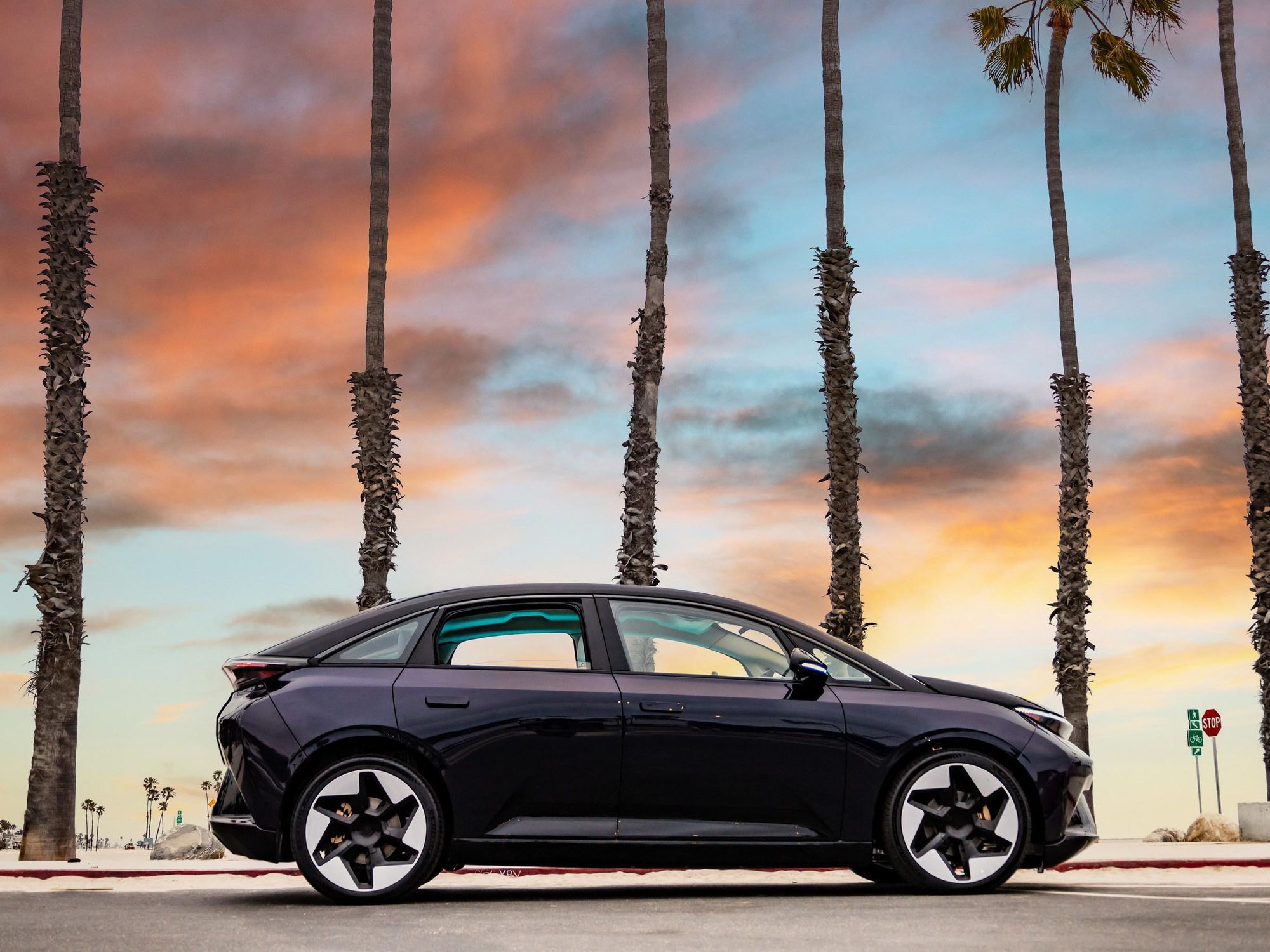EV Startup INDIEV Links With Foxconn To Produce SUVs
Samson Amore is a reporter for dot.LA. He holds a degree in journalism from Emerson College. Send tips or pitches to samsonamore@dot.la and find him on Twitter @Samsonamore.

INDIEV, a startup based in Vernon, announced this week it will partner with Taiwanese tech conglomerate Foxconn to build its first prototypes of its upcoming electric SUV, nicknamed the INDI One.
The debut makes it the seventh consumer electric vehicle company to enter Los Angeles’s crowded cohort of green carmakers.
The factory, however, won’t be in Los Angeles. Instead, INDIEV will use a former Lordstown Motors electric vehicle plant in Ohio, which partner Foxconn now owns after purchasing it for $230 million last October. The plan is for INDIEV to use the Ohio operations to produce prototypes of the INDI One, which the company began developing in 2017.
“Foxconn’s facilities are massive, with plenty of space for the different vehicles’ manufacturing lines to all coexist,” an INDIEV spokesperson told dot.LA via email. “At the end of the day, these are manufacturing partnerships, and all [original equipment manufacturers] need somewhere in America to produce their vehicles. It’s no surprise that Foxconn’s talents are in high demand.”
As such, for now, Foxconn is involved with INDIEV strictly in a production capacity, but may soon become an investor: INDIEV’s spokesperson said the companies are discussing expanding their partnership.
Per INDIEV’s website,the company plans to begin delivering reserved vehicles by the third quarter of 2023. So what can consumers expect from the INDI One?
The car is set to have a range of 230 miles and a top speed of 120 mph. Though reservations start at $45,000, INDIEV wouldn’t disclose how many orders it’s received for the upcoming car.
It also wouldn’t say if the vehicle has been certified by the Environmental Protection Agency. But their spokesperson noted the INDI One passed all test crashes and is preparing to begin the certification process with federal agencies soon – a vital step towards getting cars on the road.
Aesthetically speaking, for a car that claims to be “unique,” the INDI One looks a lot like most other electric SUVs on the market or in development right now. In particular its exterior is quite similar to Manhattan Beach-based Fisker’s battery-electric crossover SUV named Ocean, or Jaguar’s electric I-Pace car.
The main differentiator for INDIEV is therefore its almost over-zealous embrace of tech. The INDI One will supposedly be filled with cameras, not just for safety but content creation and editing in the vehicle. Like rival Tesla the car will supposedly run video games, streaming apps, and VR.
Plus the cars will be tied to the blockchain – which might sound ridiculous but INDIEV says it plans to offer its own token in the future and claims that a blockchain-enabled car could allow drivers to earn passive income just by owning one: “Just by turning on your car every day and participating in the decentralized ledger, you will receive a daily share of transactions fees from activity on the blockchain,” the company promised in January.
To be clear, this deal isn’t the first time Foxconn has linked with a local EV maker to provide much-needed factory expertise and space – the auto manufacturer is also backing Manhattan Beach-based Fisker, and inked a nearly identical deal with Fisker last year to produce its cars at the same Ohio factory.
As such, INDIEV is basically bunking with a competitor at the Ohio plant. Which isn’t necessarily an issue for the EV industry writ large if large manufacturers like Foxconn with experience running massive factories want to supplement the operations of several EV makers at once. No one can argue that we don’t need more battery, charger and assembly plants in the U.S., and not every company can crack the factory code like Tesla. Making it valuable for EV startups like INDIEV to sign these agreements to ensure they don’t have to take on the cost and logistics that come with building a factory from scratch.
- Why Rivian Decided To Cancel Its Cheapest EVs - dot.LA ›
- Here's What EVs Are Doing to California's Energy Grid - dot.LA ›
- EVs Cars Not Reliable, Says Consumer Reports - dot.LA ›
Samson Amore is a reporter for dot.LA. He holds a degree in journalism from Emerson College. Send tips or pitches to samsonamore@dot.la and find him on Twitter @Samsonamore.



 Image Source: Skyryse
Image Source: Skyryse
 Image Source: Northwood Space
Image Source: Northwood Space